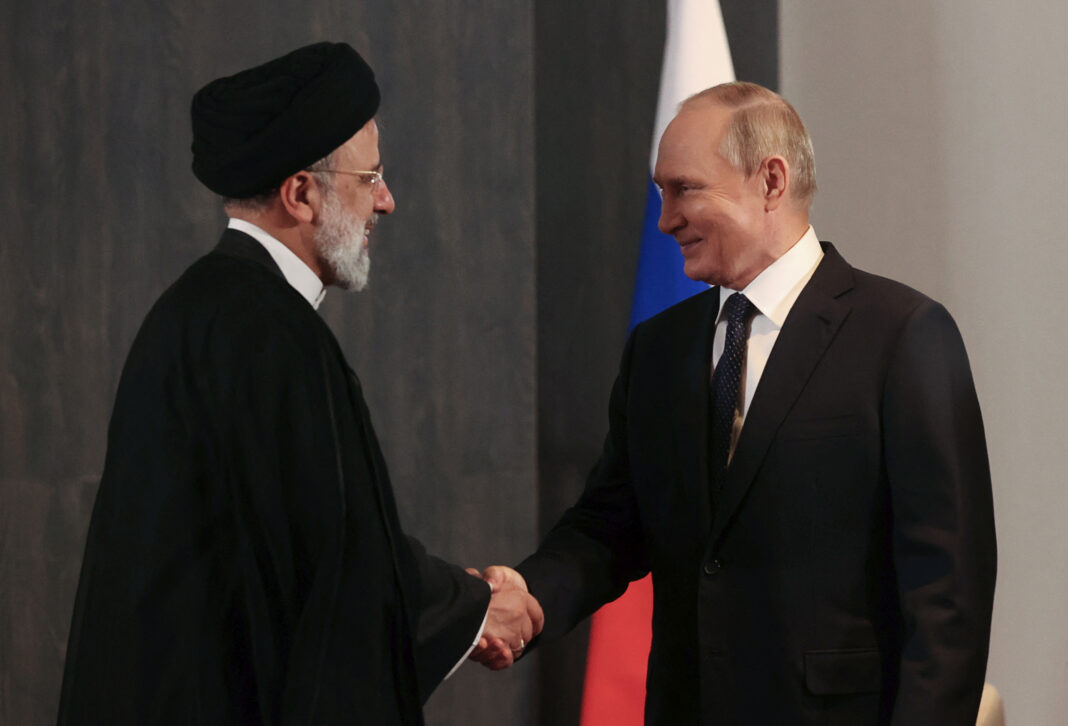8 months have passed since the start of Ukraine war and it has had wide-ranging implications for geopolitical and geo-economics trends in the international politics.
The war could lead to new strategic relations between Russia and other key players in the Middle-East, including Iran.
The Iranian president, Ebrahim Raisi, was one of the first world leaders to hold a phone conversation with his counter-part and express his support for Moscow in the Ukraine war. In a phone conversation with Vladimer Putin Raisi said; ‘The expansion of the NATO is a serious threat to the stability and security of independent countries in different regions’.
At the media level, countries’ reception of the Ukraine war remained similar. The Iranian’s state broadcaster has so far refused to refer it as a ‘war’ or ‘invasion’, instead it has used the ‘special military operation’ terminology, like what Putin pronounced to explain his choice. Furthermore, the Iranian authorities have pinned the blame entirely on the United States and ‘NATO expansion’ to the east. At the global level, both countries reject the NATO expansion. NATO perceptions of threat from Iranian side has recently been expressed in a meeting between Iranian supreme leader and Kazakh President, ’the developments should be carefully monitored and looked into due to the fact that the Americans and Westerners are always trying to expand their influence in different regions, no matter whether it is the eastern Asia or western Asia, and to target the independence and sovereignty of other countries’. The extent of Iranian support for the war has expanded to the point that Iran has even provided drones to Russia. This is a clear sign of increased military cooperation between Moscow and Tehran, similar to the Syrian civil war.
Russia and Iran relations have always been complex with many upside-downs that both Tehran and Moscow have experienced with regards to one another. Here we will focus on what factors can best explain this convergence between Iran and Russia.
- Russia and Iran have a shared anti-western worldview, in particular towards the United States. Both strongly oppose the international liberal order led by Washington D.C. and perceive similar threats from the U.S. at regime change policy level.
- As both countries are under sanctions, this common perception of threat has drawn Russia and Iran closer together. Tehran and Moscow challenge the established global financial system by engaging in increased trade. On 26 July this, the Iranian minister of economy confirmed that negotiations are underway between Russia and Iran to ditch dollar in bilateral trades.
As explained above, the Iranian-Russian relations entered into a new phase due to the tectonic waves unleashed by the war in Ukraine. As expected, Tehran and Moscow seem to share the same stance regarding the war. Both countries perceive similar threats from ‘NATO expansion’, an anti-US sentiment and similar financial strategy to cope with sanctions. Tehran’s support for Russia undermines its similar threat perceptions. It seems that the war in Ukraine has worked as a catalyst for Russia-Iranian relations and paved the way for them to establish closer ties at military, financial and economic levels.
Whereas both countries have shown a similar stance, as we said Iran and Russia relations since the collapse of the Soviet Union in December 1991 have experienced many ups and downs. Therefore, a change in the future relations should not be surprising.
The war could lead to new strategic relations between Russia and other key players in the Middle-East, including Iran.




